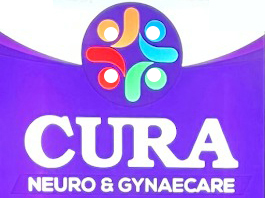
How to Keep Your Mind Sharp and Strong
In today’s fast-paced world, we spend a lot of time focusing on physical health—counting steps, tracking calories, and hitting the gym. But how often do we think about our brain health? Just like your body, your brain needs exercise, fuel, and rest to function at its best. Whether you're a student, a working professional, or enjoying retirement, taking care of your brain is essential for memory, focus, mood, and even longevity.
What Is Brain Health?
Brain health refers to the ability to remember, learn, play, concentrate, and maintain a clear and active mind. It includes both cognitive health (how well you think, learn, and remember) and emotional well-being. A healthy brain can help delay or prevent age-related decline and reduce the risk of conditions like Alzheimer's, dementia, and depression.
🥦 1. Eat Smart for a Sharp Mind
Your brain consumes about 20% of your body’s energy. That’s a lot! What you eat directly affects your brain’s structure and performance.
Best Foods for Brain Health:
- Fatty fish (like salmon and sardines): rich in omega-3s that boost memory and mood.
- Berries: packed with antioxidants that slow brain aging.
- Leafy greens: such as spinach and kale, full of vitamins and brain-protective compounds.
- Nuts and seeds: a good source of vitamin E, which supports brain health.
- Dark chocolate: yes, in moderation! It contains flavonoids that enhance cognitive function.
🏃 2. Stay Active – Move That Body
Regular physical activity increases blood flow to the brain and supports the growth of new brain cells.
Try This:
- Aim for 30 minutes of moderate exercise (like brisk walking, cycling, or dancing) most days of the week.
- Include coordination-based exercises (like yoga or tai chi) to boost mental focus and balance.
💤 3. Get Quality Sleep
Sleep isn’t just rest—it’s when your brain consolidates memories, clears out toxins, and recharges.
- Adults need 7–9 hours of sleep each night.
- Practice good sleep hygiene: reduce screen time before bed, keep your room dark and cool, and maintain a consistent sleep schedule.
📚 4. Keep Learning
Your brain thrives on new challenges. Learning builds new neural connections and keeps your mind flexible.
Ideas to Stay Mentally Active:
- Read a book or listen to podcasts.
- Learn a new language, instrument, or hobby.
- Play brain games and puzzles like Sudoku, crosswords, or chess.
🤝 5. Stay Social
Meaningful relationships and social activities help protect against memory loss and cognitive decline.
- Connect with friends and family regularly.
- Join community groups, clubs, or online forums.
- Volunteer or mentor—helping others boosts both brain and heart health.
🧘 6. Manage Stress
Chronic stress can shrink brain structures involved in memory and emotion regulation.
Tips to Relax:
- Try mindfulness meditation or breathing exercises.
- Spend time in nature.
- Practice gratitude journaling or creative hobbies.
🚫 7. Avoid Harmful Habits
- Limit alcohol: Excessive drinking harms brain cells.
- Don’t smoke: tobacco damages blood flow to the brain.
- Protect your head: wear helmets when cycling or playing sports.
Final Thoughts
Your brain is your most valuable asset. The good news? It’s never too early—or too late—to start taking care of it. By making small, consistent lifestyle choices, you can improve your mental clarity, emotional balance, and long-term cognitive health.
So start today: eat a handful of nuts, take a walk, call a friend, or try a new puzzle. Your future brain will thank you.

